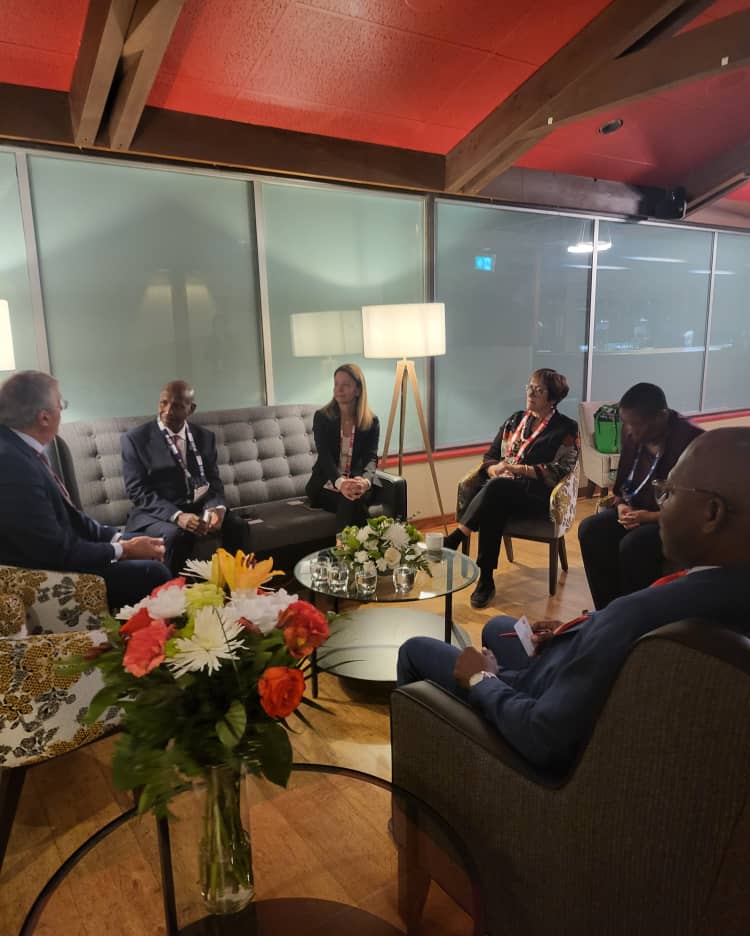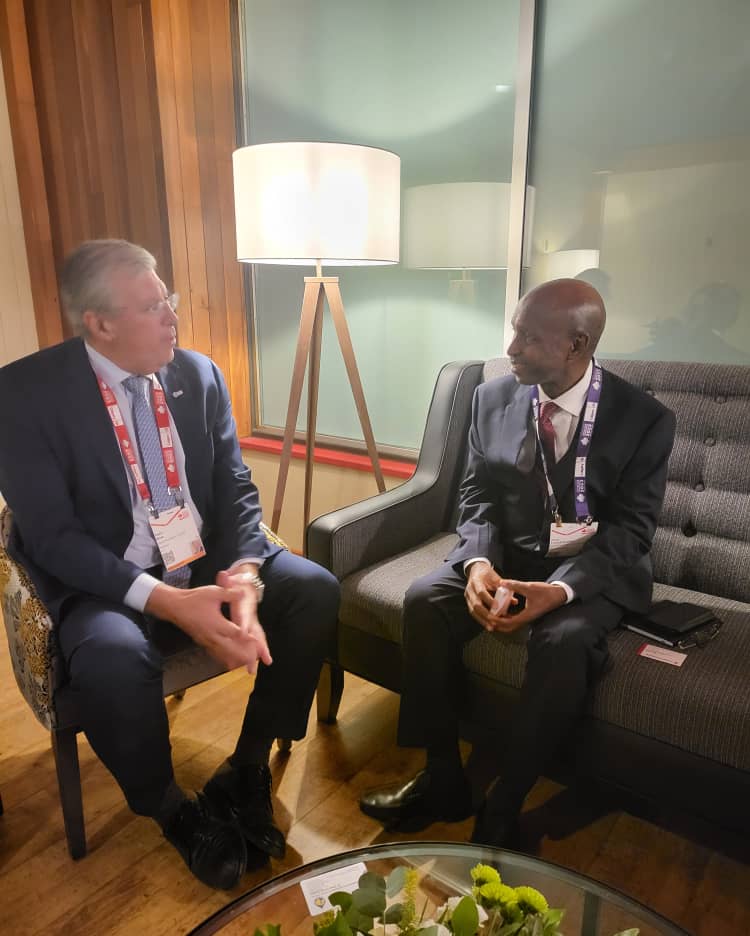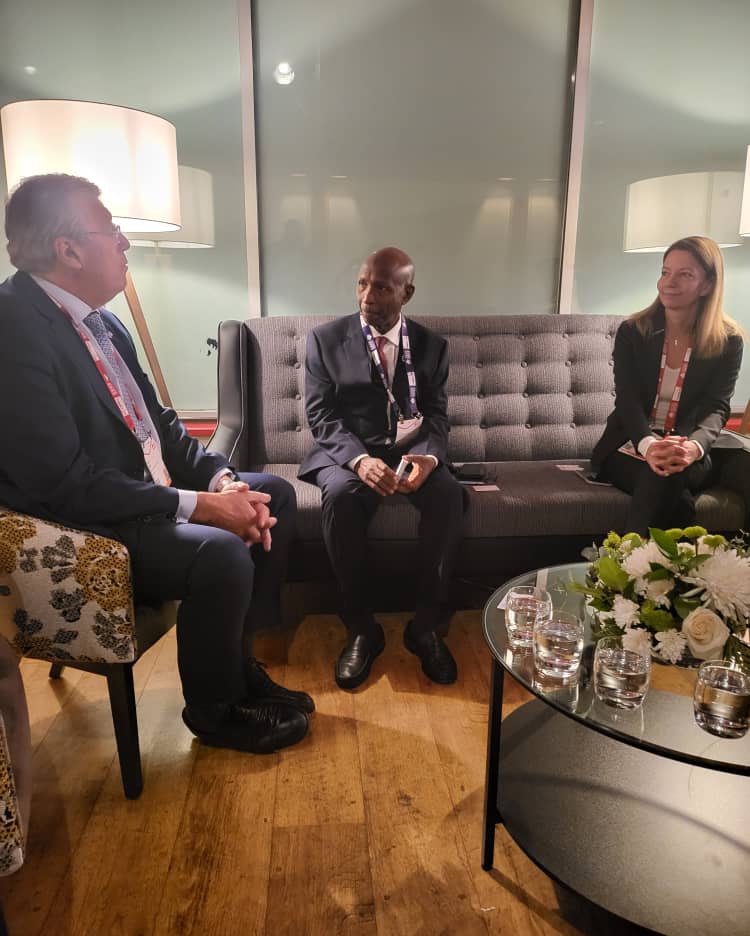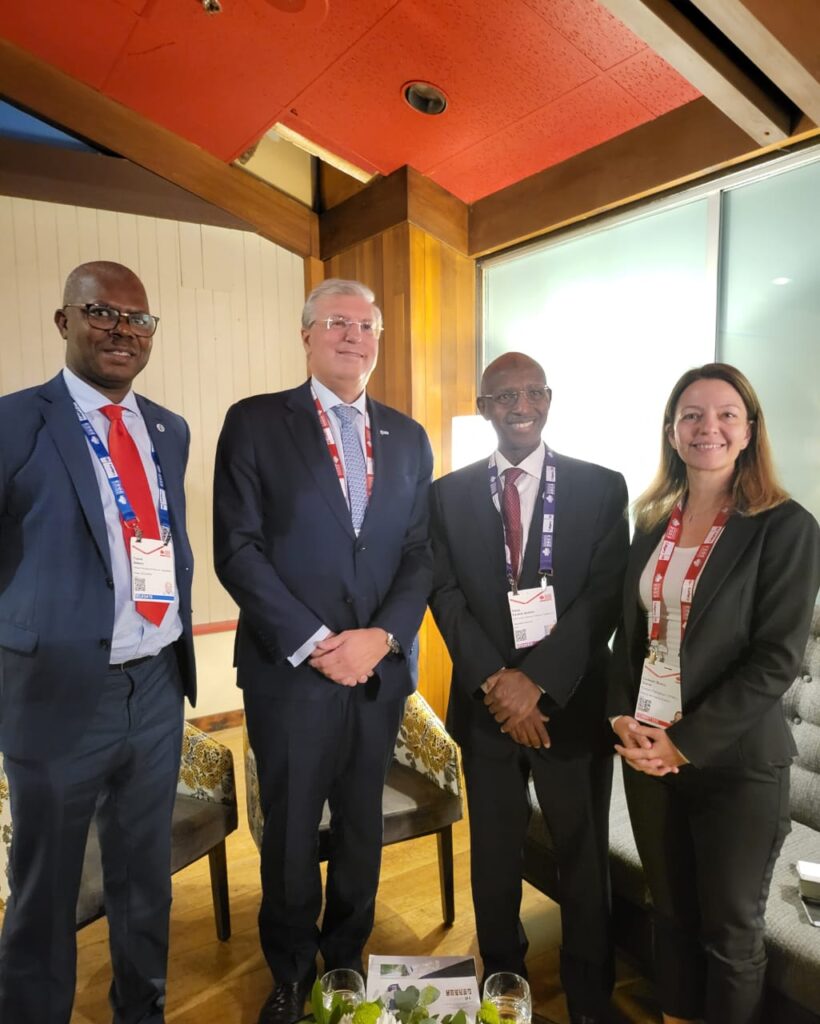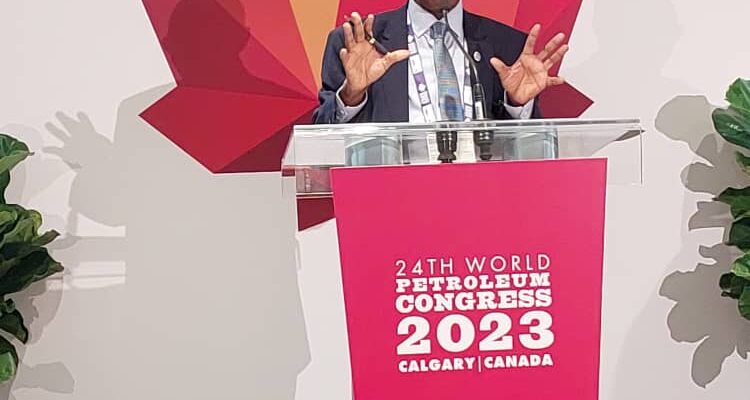ENGLISH
The 24th Edition of the World Petroleum Congress ended on September 21, 2023, in Calgary, Canada with the selection of the Kingdom of Saudi Arabia as the host of the next edition of the triennial event, scheduled for 2026.
The 24th edition that just ended was held under the theme Energy Transition: The Path to Net Zero and attracted several participants from the oil and gas industry. The APPO Secretariat participated actively in this edition of the World Energy Event. In his contribution during a panel discussion on “Managing the Energy Transition Responsibly’’, Dr. Omar Farouk Ibrahim, the Secretary General of APPO posited that what Africa needs from the developed nations of the world is not hand-outs but partnerships to develop oil and gas technology on the continent, as the reputable institutions of oil and gas that Africa has been sending its oil and gas students and operators for further studies are closing their faculties of petroleum.
In another panel on “Translating Net Zero Ambitions into Oil and Gas Upstream,’’ the APPO Secretary General said that it is not only unfair but punitive for the developed countries who champion climate change to put pressure on Africa to abandon fossil fuels when over 2,500 Giga tons of carbon dioxide was added to the atmosphere in the last 150 years mostly by the developed countries. He argued that instead of promising 100 billion dollars for climate finance to developing countries for adaptation and mitigation, funds that are not completely free but loans, the developed countries should use that money to further develop and deploy carbon capture technologies so that they can remove 1 to 20 percent of the emission that they have released. With 400 to 500 Giga tons of CO2 removed from the atmosphere, developing countries can have the opportunity to also use fossil fuels to grow their economies and lift their people from abject poverty. Dr. Ibrahim noted that lifting Africa from energy poverty shall not require the emission of a fraction of what he is calling on the developed countries to remove.
Dr Ibrahim pointed out that it is in the spirit of technical cooperation that the APPO team visited world-class oil and gas institutions in Calgary, including the University of Calgary, Southern Alberta Institute of Technology, SAIT. He noted that APPO and its Member Countries are working on establishing Centers of Oil and Gas Excellence in various regions of the African continent.
APPO leverages its presence at the 24th WPC to engage with the Canadian Energy Industry in Calgary which is the hub of the Canadian Energy Industry Especially Oil and Gas as it has the largest concentration of energy companies, industry, and professional associations in Canada. Canada has the third largest oil reserve in the world and is the world’s fourth largest oil producer and fourth largest oil exporter and world’s largest producer of oil sands bitumen in the world. It is also noteworthy that Alberta is the largest producer of conventional crude oil, synthetic crude, natural gas, and natural gas liquids products in Canada.
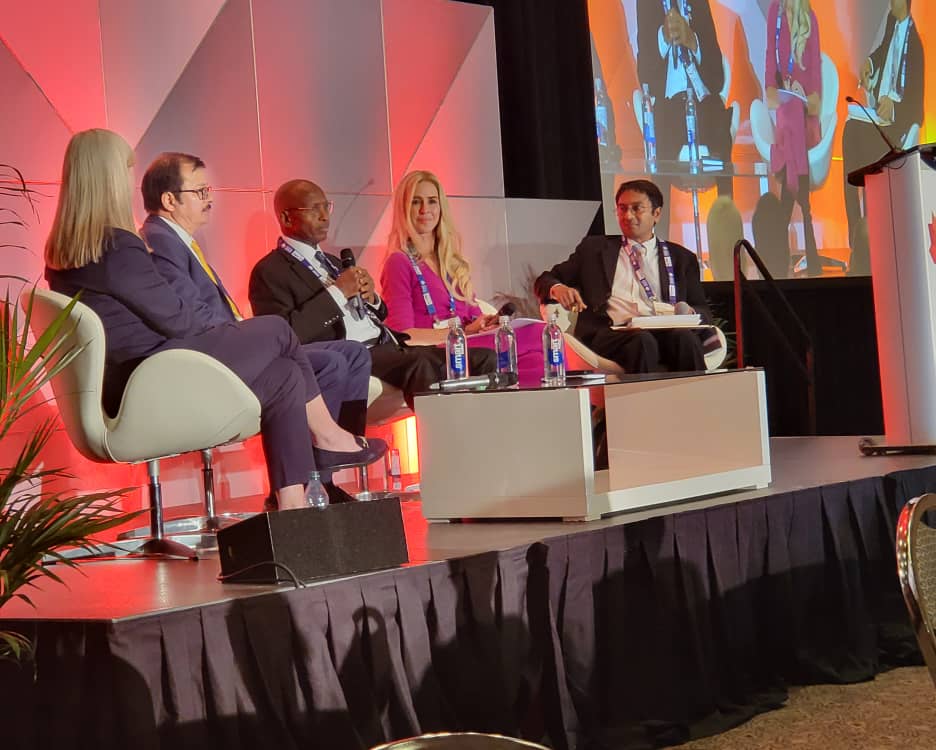
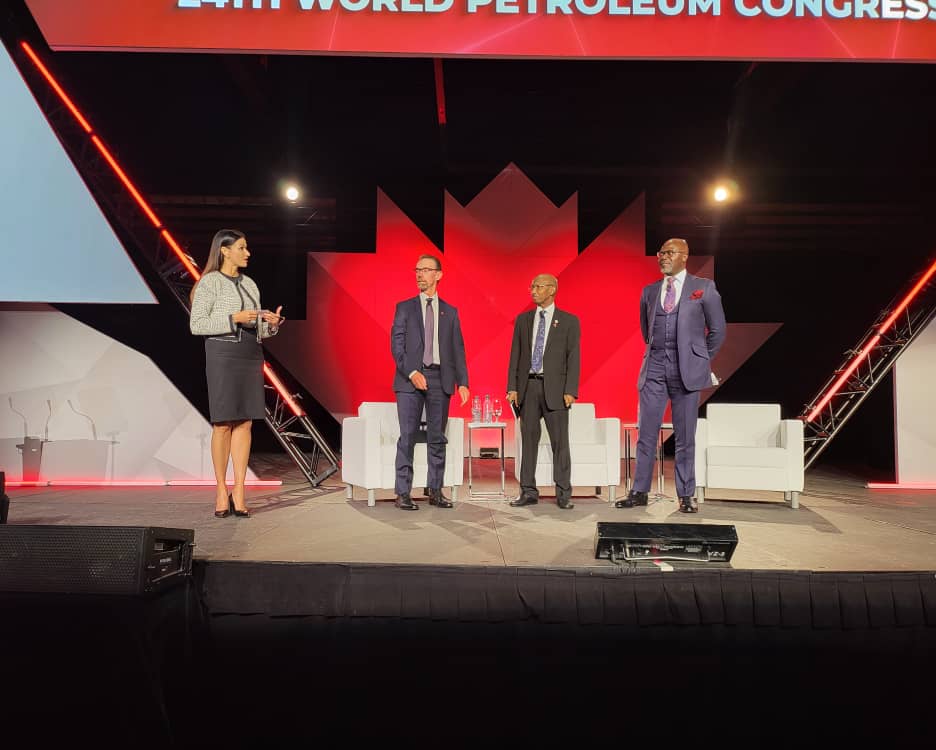
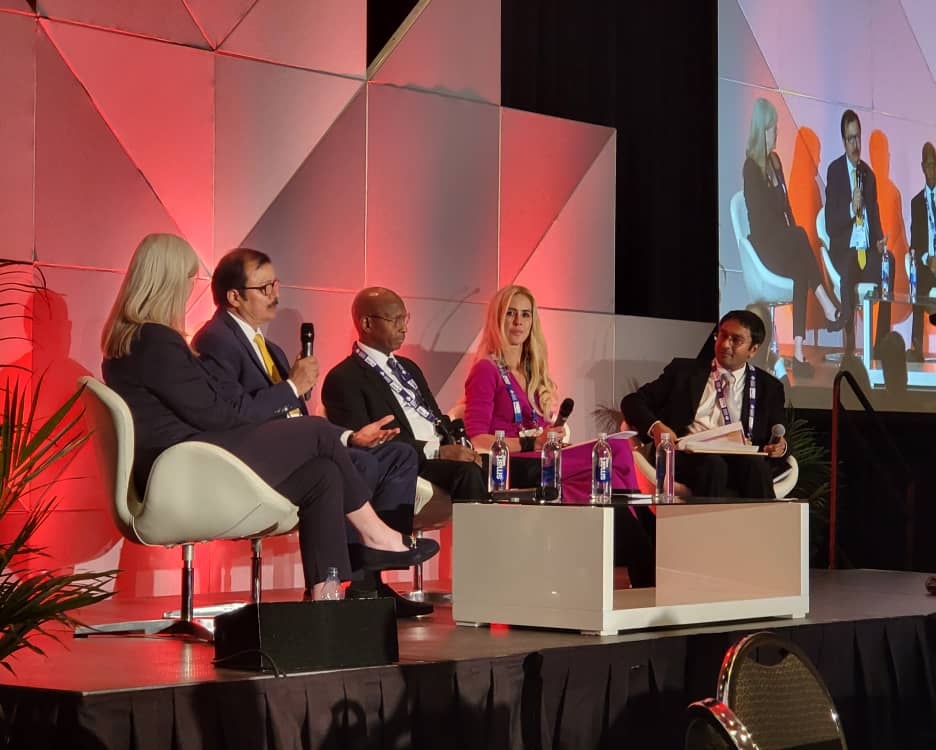
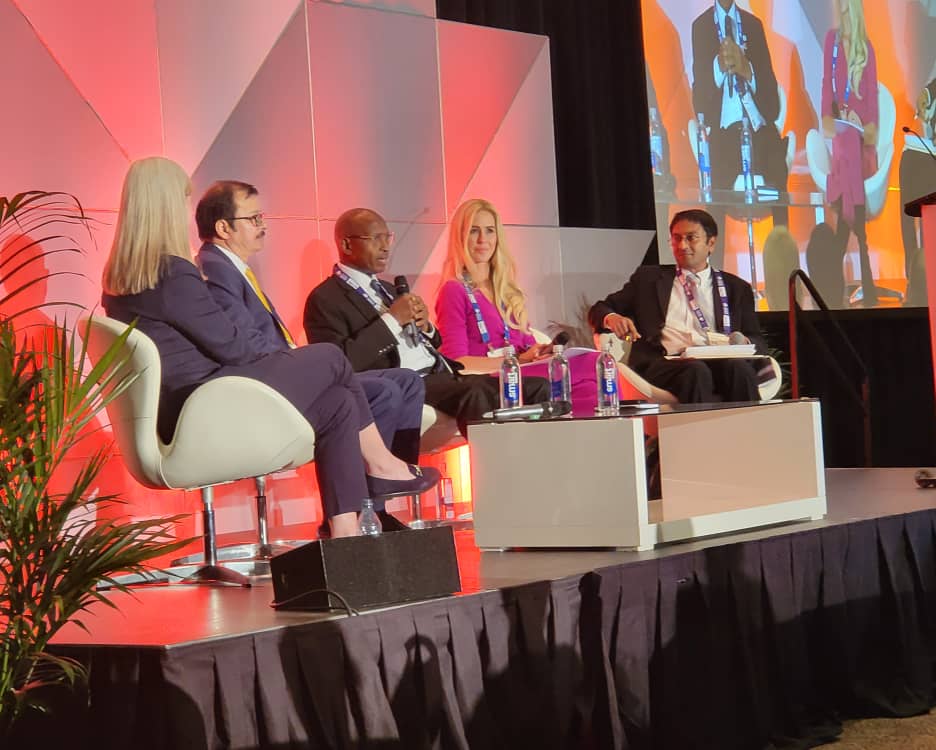
Strategic Meeting between APPO Secretary General and the President of the World Petroleum Council
On the sidelines of the 24th Edition of the World Petroleum Congress, the SG of APPO met with several players in the global oil industry, including the President of the WPC, Mr. Pedro Miras with whom he discussed the need for cooperation and partnership between the two organizations in especially in the light of the light of the challenges posed to the industry by the energy transition.
Mr. Pedro Miras gave the background on the change in name from WPC to WPC Energy to align with the Global and inclusive trend where all sources of energies play roles in the Energy Transition. However, he stressed the fact that oil and gas will continue to play an important role in the global energy mix for decades to come with over a hundred million barrels of crude oil produced daily.

FRENCH
La 24ème Edition du Congrès Mondial du Pétrole s’est terminée le 21 septembre 2023 à Calgary, au Canada, avec la sélection du Royaume d’Arabie Saoudite comme hôte de la prochaine édition de l’événement triennal, prévue pour 2026.
La 24ème Edition qui vient de se terminer s’est déroulée sous le thème Transition énergétique : la voie vers la carboneutralité, et a attiré plusieurs participants de l’industrie pétrolière et gazière. Le Secrétariat de l’APPO a participé activement à cette édition de l’évènement mondiale de l’énergie. Dans sa contribution lors du Panel de discussions sur « Gérer la transition énergétique de manière responsable », Dr Omar Farouk Ibrahim, Secrétaire Général de l’APPO, a affirmé que ce dont l’Afrique a besoin de la part des pays développés du monde, ce n’est pas d’aumônes, mais de partenariat pour développer la technologie pétrolière et gazière sur le continent, car les institutions pétrolières et gazières réputées vers lesquelles l’Afrique envoyait ses étudiants et opérateurs pétroliers et gaziers pour poursuivre leurs études sont en train de fermer leurs facultés de pétrole.
Dans un autre panel sur « Traduire les ambitions carboneutralité dans l’amont pétrolier et gazier», le Secrétaire Général de l’APPO a déclaré qu’il était non seulement injuste mais punitif pour les pays développés qui défendent le changement climatique de faire pression sur l’Afrique pour qu’elle abandonne les combustibles fossiles alors que plus de 2 500 gigatonnes de dioxyde de carbone ont été émis dans l’atmosphère au cours des 150 dernières années, principalement par les pays développés. Il a fait valoir qu’au lieu de promettre 100 milliards de dollars pour le financement de la lutte contre le changement climatique aux pays en développement pour l’adaptation et l’atténuation, des fonds qui ne sont pas entièrement gratuits mais des prêts, les pays développés devraient utiliser cet argent pour développer et déployer davantage les technologies de capture du carbone afin qu’ils puissent éliminer 1 à 20% des émissions qu’ils ont libérées. Avec 400 à 500 gigatonnes de CO2 retirées de l’atmosphère, les pays en développement peuvent également avoir la possibilité d’utiliser des combustibles fossiles pour développer leurs économies et sortir leur population de la pauvreté abjecte. Dr. Ibrahim a noté que sortir l’Afrique de la pauvreté énergétique ne nécessitera pas l’émission d’une fraction de ce dont il appelle les pays développés à supprimer.
Il a en outre souligné que c’est dans un esprit de coopération technique que l’équipe de l’APPO a visité des institutions pétrolières et gazières de classe mondiale à Calgary, notamment l’Université de Calgary, le Institut de Technologie du Sud-ouest de l’Alberta, SAIT. Il a noté que l’APPO et ses Pays Membres travaillent à la création de centres d’excellence pétrolière et gazière dans diverses régions du continent africain.
L’APPO a tiré profit de sa présence au 24ème WPC pour tisser des relations avec l’industrie canadienne de l’énergie à Calgary, qui est la plaque tournante de l’industrie canadienne de l’énergie, en particulier du pétrole et du gaz, car elle compte la plus grande concentration de sociétés énergétiques, d’industries et d’associations professionnelles au Canada. Le Canada possède la troisième réserve de pétrole en importance au monde et est le quatrième producteur mondial de pétrole, le quatrième exportateur de pétrole et le plus grand producteur mondial de bitume issu des sables bitumineux dans le monde. Il convient également de noter que l’Alberta est le plus grand producteur de pétrole brut classique, de pétrole brut synthétique, de gaz naturel et de liquides de gaz naturel au Canada.
Réunion stratégique entre le Secrétaire général de l’APPO et le Président du Conseil mondial du pétrole
En marge de la 24ème édition du Congrès mondial du pétrole, le SG de l’APPO a rencontré plusieurs acteurs de l’industrie pétrolière mondiale, dont le Président du WPC, M. Pedro Miras avec qui il a discuté de la nécessité d’une coopération et d’un partenariat entre les deux organisations en particulier à la lumière des défis posés à l’industrie par la transition énergétique. M. Pedro Miras a donné le contexte du changement de nom de WPC à WPC Energy pour s’aligner sur la tendance mondiale et inclusive où toutes les sources d’énergie jouent un rôle dans la transition énergétique. Cependant, il a souligné le fait que le pétrole et le gaz continueront de jouer un rôle important dans le bouquet énergétique mondial pour les décennies à venir avec plus de cent millions de barils de pétrole brut produits quotidiennement.
